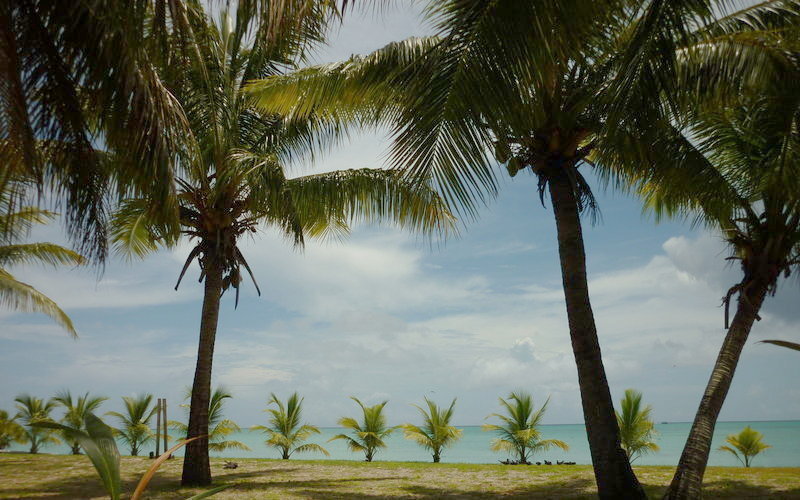
New study questions loyalty of Spanish soldiers to empire building in the Pacific.
Spanish soldiers - and often their Filipino counterparts - had the capacity to destabilise the imperial project from within.
Stephanie Mawson
A new study on mutiny by Spanish soldiers in the Pacific region in the 17th century raises questions about the nature of loyalty to the empire-building process.
Gates Cambridge Scholar Stephanie Mawson's study is published in the June edition of the Journal of Pacific History. It focuses on the fledgling Spanish colony in the Marianas, the northernmost
islands of a larger island group called Micronesia, and catalogues seven episodes of mutiny in the 1680s. These culminated in the successful takeover of the island of Guam in 1688 by a group of mutineers led by a convict captain.
Stephanie [2014] says that, in the context of ongoing campaigns of indigenous resistance to Spanish colonisation, the actions of the mutinous soldiers placed the project of empire-building in the Marianas in serious peril.
She adds: "The events surrounding these mutinies have often been underplayed within a historiography that focuses on the violent nature of the Spanish presence in the Marianas. Nevertheless, the soldiers' mutinies of the 1680s add another perspective to this turbulent history. The experience of mutiny raises considerable questions about the nature of loyalty among ordinary
soldiers to the project of empire-building in the Pacific. It demonstrates that Spanish soldiers – and often their Filipino counterparts – had the capacity to destabilise the imperial project from within."
The research for the article was undertaken at the Micronesian Area Research Center (MARC) in Guam in June 2013 and was funded by the Paul Bourke Postgraduate Travel Fellowship provided by the Australian and New Zealand American Studies Association. Located at the University of Guam, MARC represents one of the most important repositories of documents relating to the Marianas, Micronesia and the Pacific more broadly. Since 1967, researchers associated with the centre have patiently collected copies of archival sources relating to the Marianas and the Pacific from archives and libraries all over the world. Stephanie says: "The extensive nature of this collection makes it an invaluable resource for the student of Pacific history, since it allows the researcher to 'visit' and cross-reference multiple archives from across the globe in the one place."
Stephanie's PhD focuses on the social side of Spanish colonisation, in particular, trading networks between different countries in south east Asia and the politics of different indigenous communities in the 17th century. She says histories of the period tend to study amost exclusively on elite Spaniards engaged in the project of colonising the region and deny the agency of ordinary people. She says: "Marginalisation is a reality not only in the sense of geo-politics or global economics, but also in terms of how we understand global historical development."
Picture credit: Cocos island, the site of the shipwreck of Nuestra Señora del Pilar in 1690, one of the events analysed in Stephanie's article.












